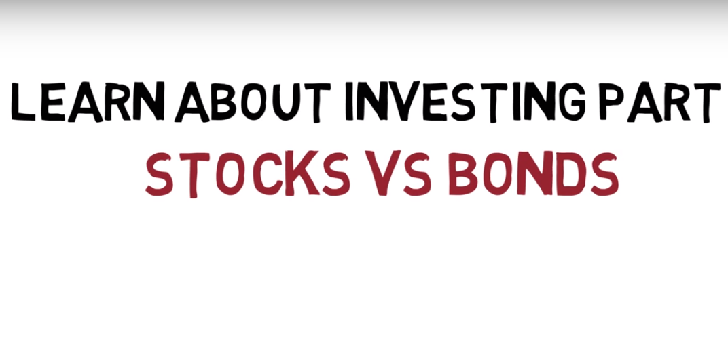As a young person, it is important to keep refining your knowledge of investments so that you can take advantage of emerging opportunities. It is only by doing this that you will be able to get your money to work for you instead of leaving it to lay idle in a bank account. Today am going to share with you some important information you need before you start investing.
I have tried my best to use the simplest explanations possible for easy understanding.
What Are Stocks and How Do They Work?
A stock (or a share) is a small piece of ownership in a business. For instance, in 2008 Safaricom went public and offered every person an opportunity to own a piece of it. Each share was then priced at Ksh5.
Let us say Mr. Juma bought stocks worth Ksh10,000 at that time and waited. So technically Mr. Juma became an owner of Safaricom — and as you know when you become a business owner, you are entitled to a share of its profit at the end of each financial year.
What Are Bonds and How Do They Work?
A bond is a debt, and when you buy one you are simply lending the government your money. For example, the Central Bank of Kenya (CBK) rolled out M-Akiba bond that you can buy for as little as Ksh3,000.
Let us say Mr. Otieno buys bonds worth Ksh30,000 and waits. So technically Mr. Otieno has lent the government his money — and as you know when you lend money, you are entitled to getting the agreed interest rates (also known as coupons or bond returns).
Which Investment Pays More?
Stocks tend to pay more particularly if you invest in a profitable company. But timing is key. If you buy stocks from a growing company then you can only hope for good returns. Bonds, on the other hand, give you relatively less but smooth returns (typically 12.5%). They are a good option if you are a long-term investor especially due to the power of compounding (in the case of zero coupon bonds).
How Much Can I Make If I Invest Ksh10,000?
Stocks can double or triple your money especially if you do the right timing. But on the other hand, if you get it all wrong, then you can as well bite some losses. Bonds, on the other hand, can give you as much as 20% returns per annum – and given the power of compound interest rate, they offer great potential for growth especially in the long-term.
Which Option Guarantees Me of Returns?
If you’re looking for “guaranteed” returns then bonds are the best investment option to make. Historically, bond prices fluctuate less than stock prices. Depending on how you invest in them, they can offer returns that are guaranteed, or close to it.
Stocks, on the other hand, are not guaranteed. If the company you’ve invested in makes losses and declares bankruptcy then you may not get any returns. For example, if you bought Mumias stocks while they were priced at Ksh15 and today they are selling at Ksh3 then your returns may not be anything worth talking about. On the other hand, you can hold on, and if the company resurrects, the share prices will rise and all will be well.
Minimum Investment Required
You can buy bonds worth as little as Ksh3,000. You can start trading in stock with as little as Ksh10,000. So anyone can invest and this is no longer a privilege of the rich.
Stocks Vs. Bonds – Which Is Better?
Bonds are better for those who are cautious about taking risks. You are guaranteed to get your investment plus interest back – unless the Government goes bankrupt. Besides that, tax-free bonds have attractive interest rates which are way above what banks and Saccos offer.
Stocks, on the other hand, are a good choice for anyone who is ready to take a greater degree of risk. You are guaranteed to grow your money faster provided the company you invest in operates profitably. However, if the company makes losses or files for bankruptcy then your investment may as well go down the drain.
